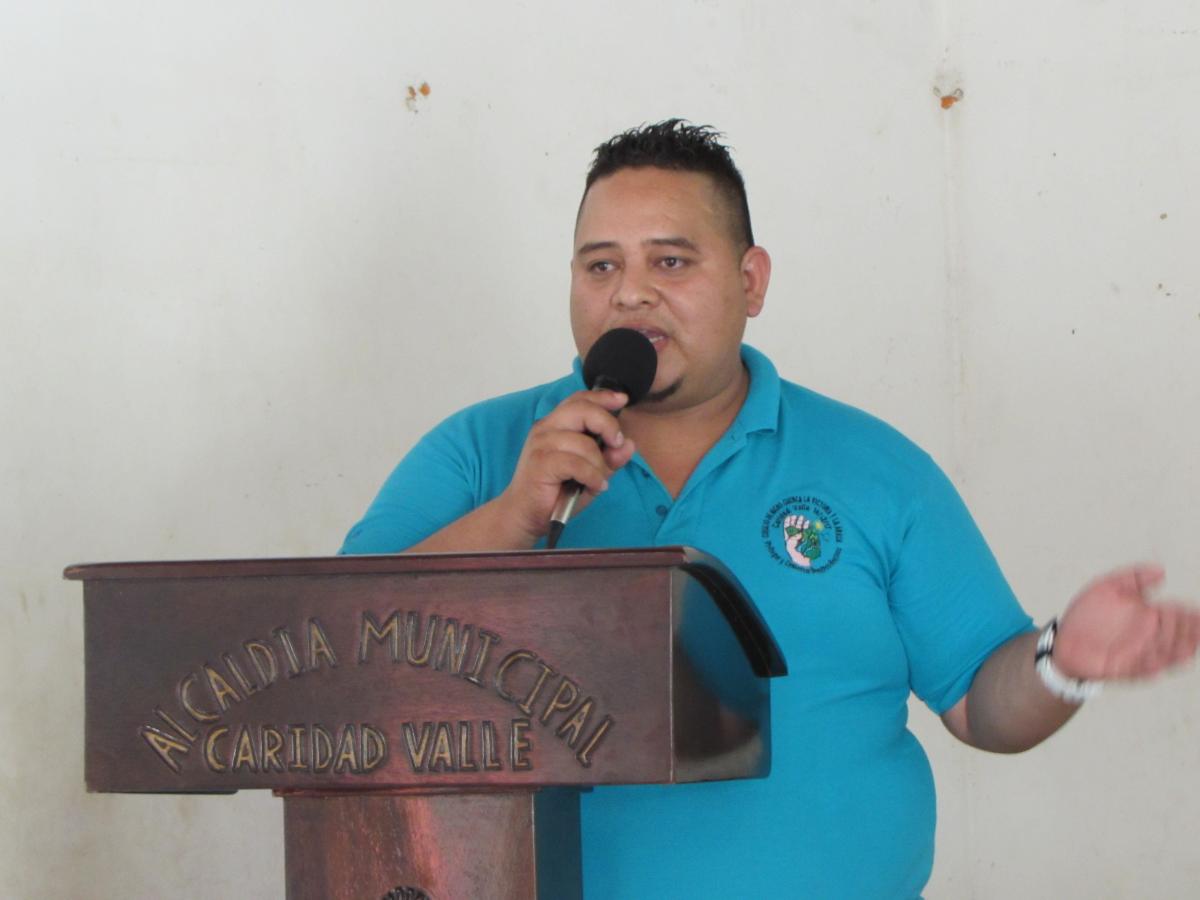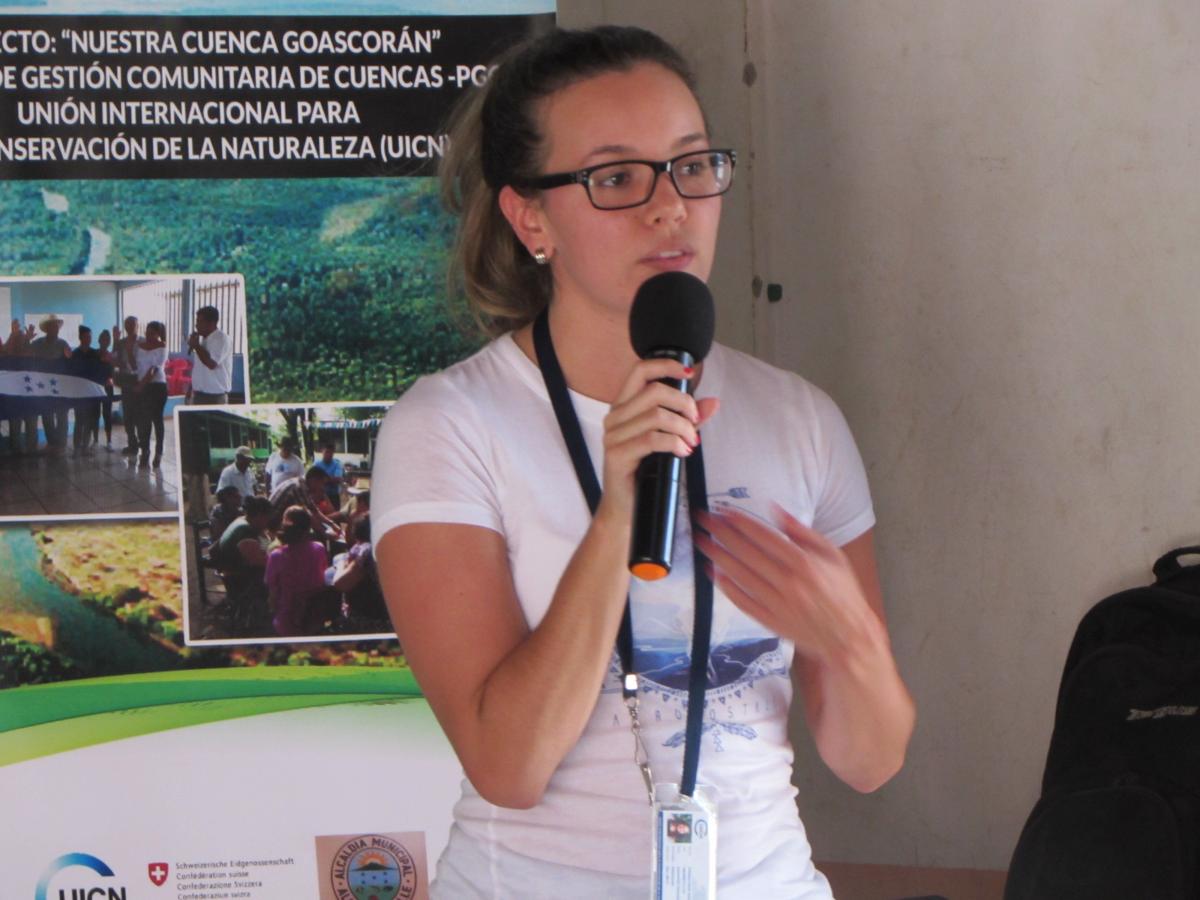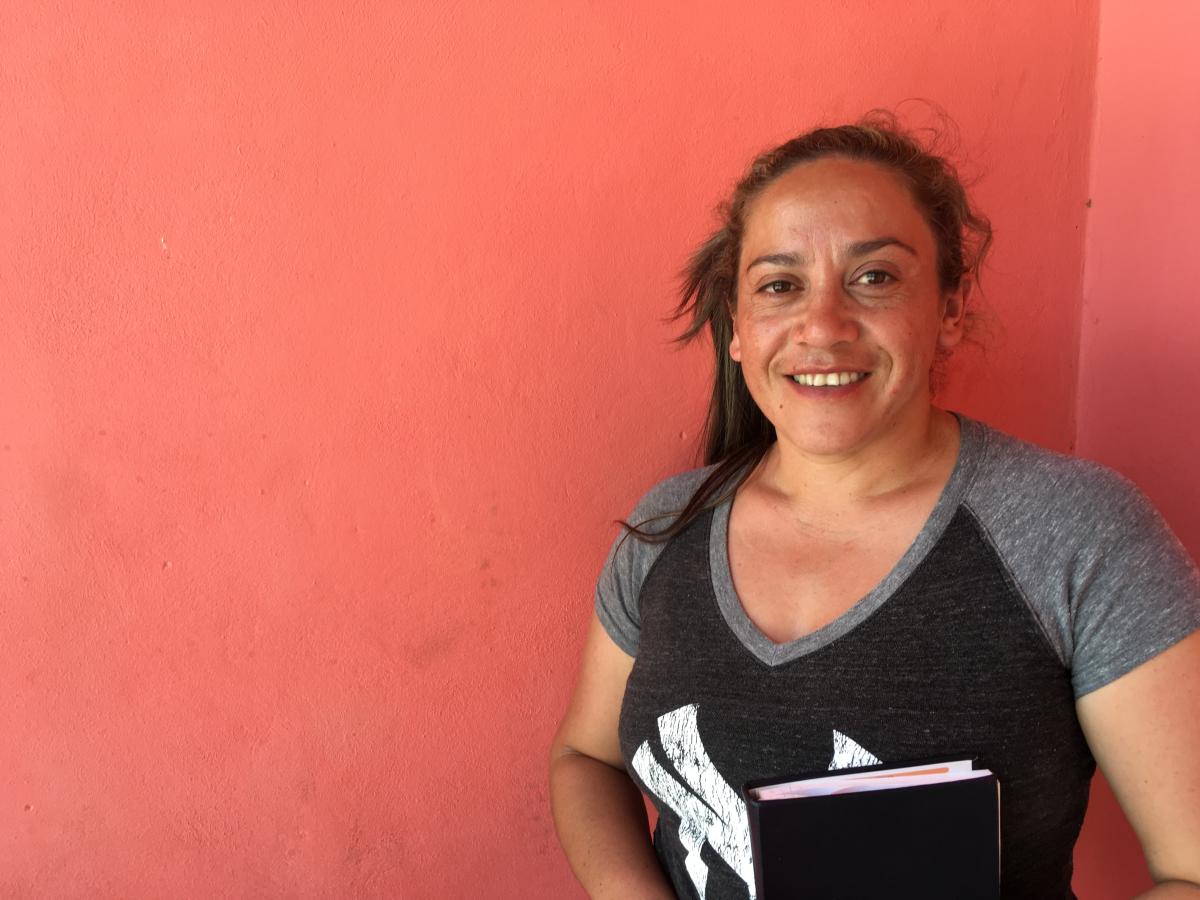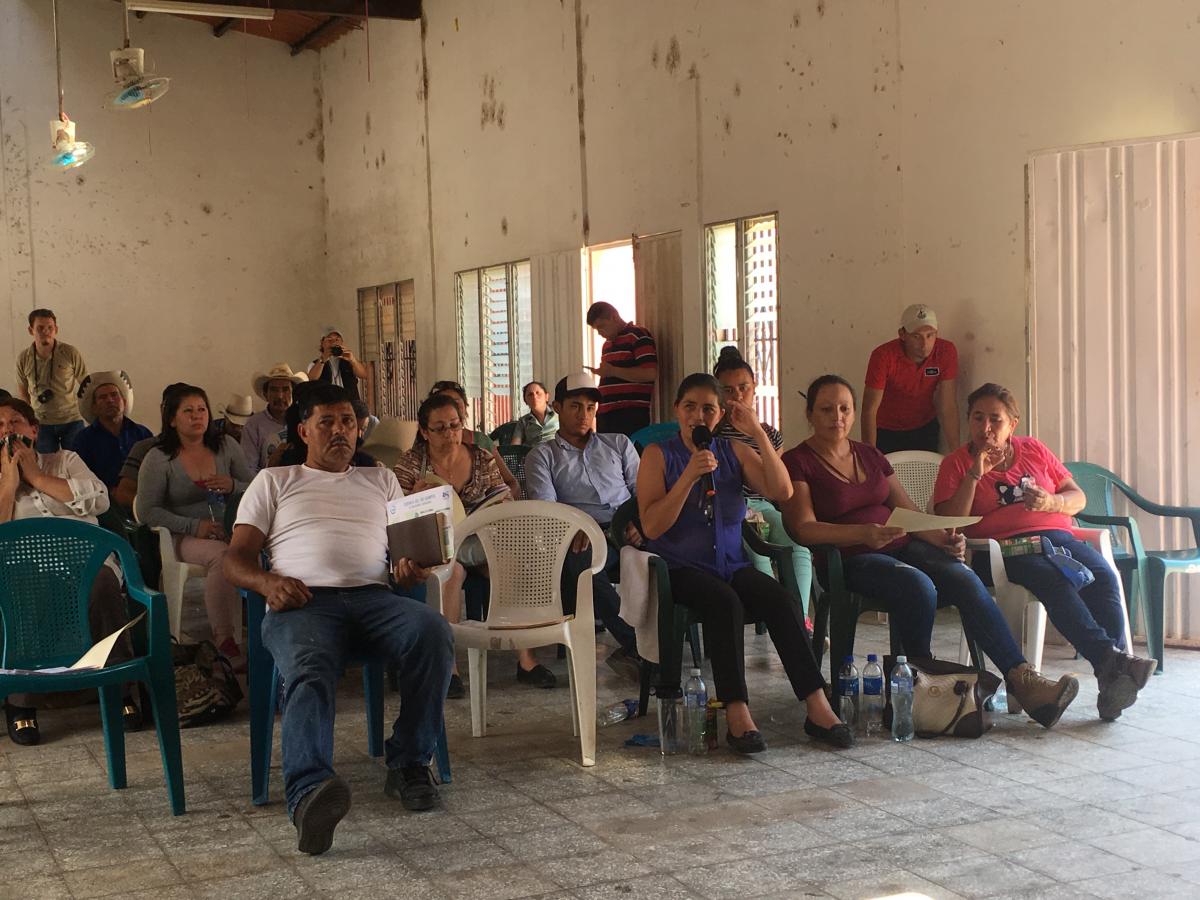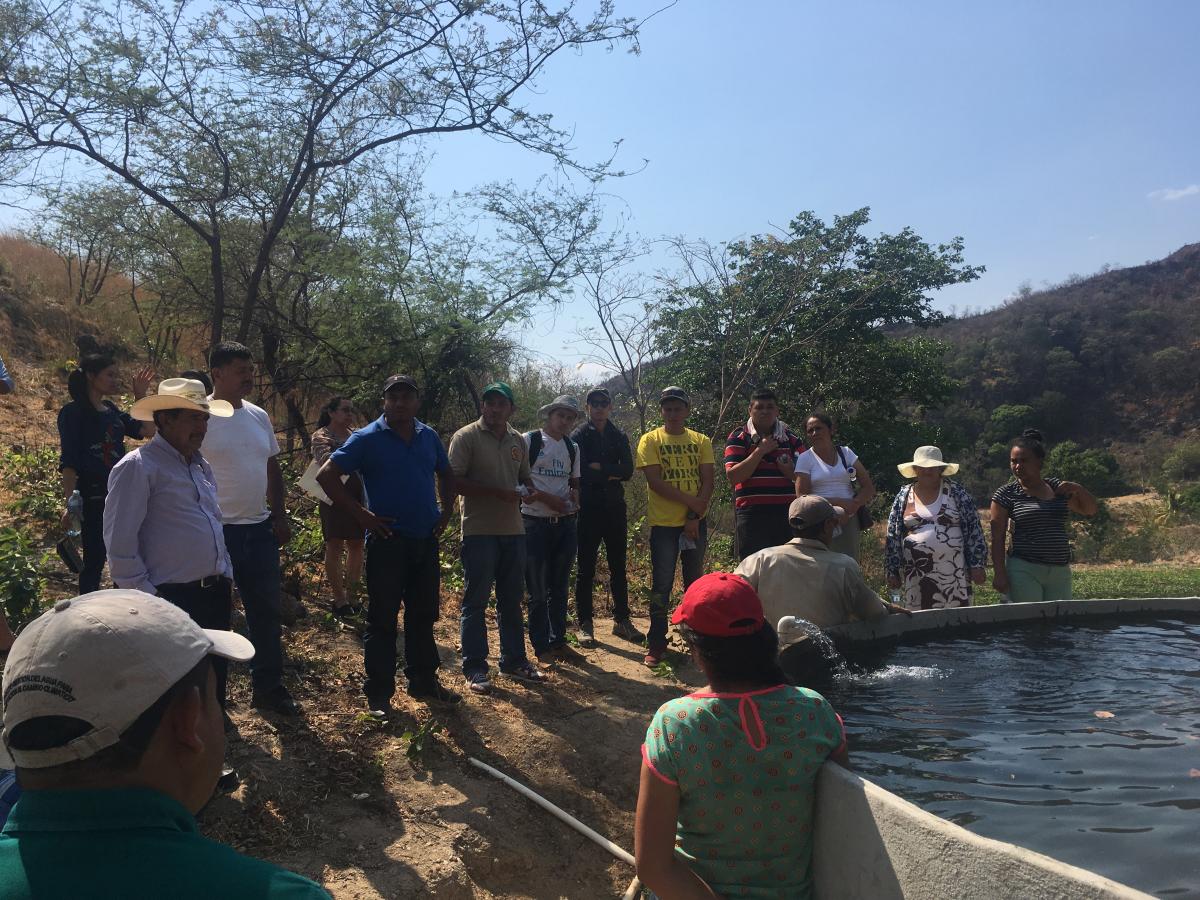Actors from Sumpul river sub-basin know experiences about water governance and climate change adaptation measures developed in Goascorán river basin
Goascorán, Honduras, April 2018. “The water binational coordination has been very positive. The Sumpul Binational Committee has achieved improve the relationships between the communities of Honduras and El Salvador, and has permitted a progress on a water project in Los Alvarado, El Salvador”.
The Goascorán river basin was the meeting place, for different actors from Sumpul river sub-basin and Goascorán river basin, (both basins located between El Salvador and Honduras); for to know successful experiences on models of local organization and climate change adaptation measures based on ecosystems, in addition, to highlight the importance of good water governance in binational watersheds.
From March 20th and 22nd 2018, participants from Sumpul had the opportunity to learn about the organizational models implemented in Honduras, such as: the Micro-watershed Council of Costa de Los Amates in Alianza, Valle; and La Victoria and La Arada, in Caridad, Valle. Josué Reyes, president of Micro-watershed Council of Costa de Los Amates and Coordinator of the Municipal Development Plan, comments: “Concerned about protecting the basin and water, we decided to organize ourselves in the Micro-watershed Council to work with the objective of not only for give protection to water resources, but also protect the places where we obtain water and promote non-contamination. Through the binational coordination, we have been able to have approaches and progress between the countries and the communities of both countries, identifying common problems such as the solid waste management”.
Additionally, the actors from Goascorán learned the experience of the creation of the Environmental Technical Boards in El Salvador, structures that have been constituted through a participatory process together with members of organized civil society, such as: Water Boards, rural credit loan organizations, Communal Development Associations (ADESCOS), municipalities, churches, governmental and international entities.
Victoria Chávez, representative of the Sumpul Binational Committee and member of the ADESCO, explains: “through the ADESCOS, we organize ourselves through directives and carry out actions such as tree planting, waste collection, among others. Women participate very well in this coordination process, because now we have been taken much more into account in the processes. In the Sumpul Binational Committee there was no woman, but today we are three or four; in the ADESCO we are more women than men, and it allows us share our ideas for improve the work and do it correctly. This has been possible thanks to the accompaniment of IUCN, which has been vital for support us and enable us to understand how manage a Water Board, how to manage groups of people within the ADESCO, among others”.
The activity was held with the support of two projects: BRIDGE: Building River Dialogue and Governance and AVE: Adaptation, Vulnerability and Ecosystems, respectively funded by the Swiss Agency for Development and Cooperation and the International Climate Initiative of the German Federal Ministry for the Environment, Nature Conservation, Building and Nuclear Safety; through their implementing partners Fundación Vida in Honduras and Plan Trifinio in El Salvador.
